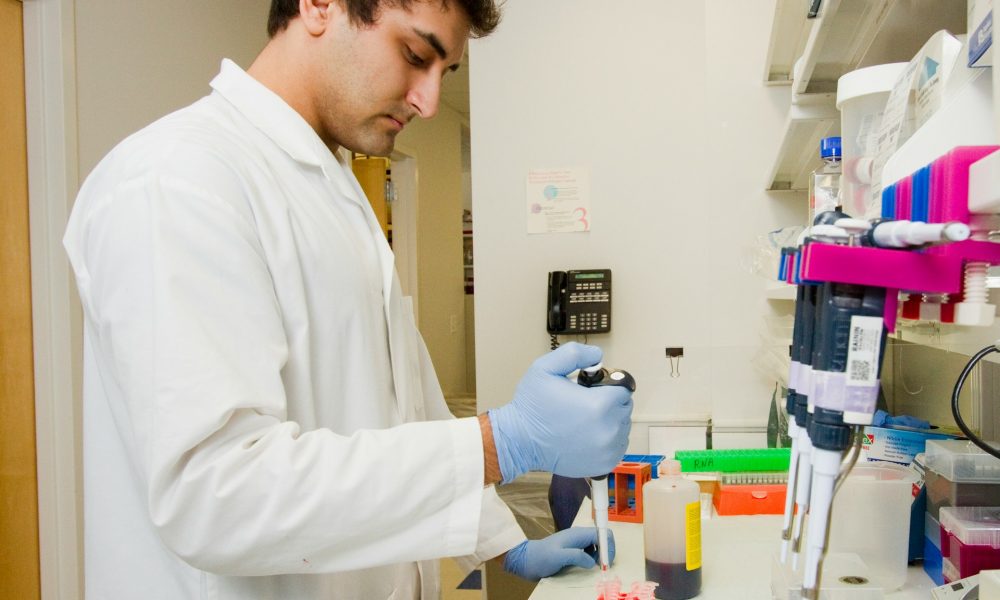
Is It Okay to Exercise Before a Blood Test?

Can you work out before blood work? It is a common question, especially for those who maintain a regular exercise routine. The short answer is, it depends. The impact of exercise on blood test results can vary. Hence, understanding these nuances is essential to ensure accurate results.
Now, let’s explore the reasons why you might want to reconsider your workout before a blood test and discuss how exercise can influence your test results:
Can You Work Out Before Blood Work?
So, can you work out before blood work? While it might seem harmless to stick to your routine, the reality is that exercising before a blood test can significantly alter your results. The changes in your body that occur during exercise – like increased levels of certain substances – can potentially skew your test results, leading to inaccurate readings.

Olly / Pexels / To ensure accurate results, it is recommended to avoid high-intensity workouts before a blood test.
For example, intense physical activity can cause a temporary spike in your creatinine levels, a waste product filtered out by your kidneys. This spike might make it seem like your kidney function is impaired when it is actually just a result of your workout.
Other substances, such as glucose and certain enzymes, can also increase after exercise, potentially leading to misinterpretations of your health status.
Why Fasting Is Important Before Blood Test
Fasting before blood work is often required to get the most accurate results. When you eat, your body absorbs nutrients and other substances that enter your bloodstream. This can interfere with the results of certain tests. This is why doctors commonly advise fasting for at least 8-12 hours before getting your blood drawn.
However, the purpose of fasting is to ensure that the blood sample reflects your baseline levels: What is normal for you without any external influences like food or drink? For instance, fasting glucose tests measure the amount of sugar in your blood without the immediate impact of a recent meal.
If you eat before such a test, your glucose levels might be artificially elevated. Consequently, this will potentially lead to a false diagnosis of prediabetes or diabetes.
What Happens to Your Blood When You Exercise?
Exercise increases your heart rate, improves blood circulation, and triggers the release of certain hormones like adrenaline and cortisol. These hormones, in turn, can cause temporary spikes in glucose levels and other markers that are commonly measured during blood tests.

Artem / Pexels / When you exercise before a blood test, your body undergoes various physiological changes that can affect your blood test results.
Likewise, intense or strenuous exercise, like weightlifting or high-intensity interval training (HIIT), can lead to increased levels of creatine kinase (CK), a muscle enzyme. High CK levels might indicate muscle damage in someone who has not exercised. However, in an active person, it could simply reflect a recent workout.
When Is It Best to Avoid Exercise Before Blood Work?
Can you work out before blood work? Well, if you are concerned about the impact of exercise on your blood test results, it is generally best to avoid intense exercise for 24-48 hours before the test. This period allows your body to return to its baseline state, giving you more accurate results.
Strenuous activities, like weightlifting or HIIT, are more likely to cause temporary changes in your blood chemistry. So, it is best to avoid them before the test.
On the other hand, moderate exercise, such as jogging or cycling, may not have as significant an impact. However, if your test is particularly sensitive, even moderate activity could cause minor fluctuations that might affect the results.
Remember, it is always a good idea to check with your healthcare provider to get specific recommendations based on the type of blood work you are having done.
More inMedicare
-
`
Why Are Men Taller Than Women? New Genetic Study Finds Clue
For centuries, the average height difference between men and women has been noticeable—men generally stand about five inches taller. While environment...
July 23, 2025 -
`
How Upcycled Beauty Ingredients Are Reshaping the Industry’s Future
The beauty industry is going through a big shift — and it’s not just about trends. As waste problems grow and...
July 17, 2025 -
`
A Look Inside Faith Kipyegon’s Groundbreaking Mile Run in Paris
Last week in Paris, Faith Kipyegon returned to a place she knows well: Stade Sébastien Charléty. But this time, she wasn’t...
July 9, 2025 -
`
Dairy Is Making a Major Comeback — And Health Shoppers Are Loving It
Just a few years ago, dairy sat quietly in the back seat while plant-based alternatives took the spotlight. Now, it’s stepping...
July 4, 2025 -
`
Does Aging Cause Dental Problems?
Aging doesn’t automatically mean losing teeth or developing gum disease. In fact, older adults today are holding onto more of their...
June 25, 2025 -
`
How Upcycled Ingredients Are Shaping the Future of Cosmetics
What used to end up in bins or compost heaps is now finding a new life inside skincare bottles and beauty...
June 18, 2025 -
`
Rock Legend Rod Stewart Trains to Break Sprint Record at 80
Age isn’t slowing Rod Stewart down. Known worldwide for his legendary voice, stadium-filling tours, and timeless hits like “Maggie May”, the...
June 11, 2025 -
`
The Truth Behind Detox Diets – Health Boost or Risky Trend?
It’s hard to scroll through your feed without seeing someone sipping green juice with promises of instant energy, glowing skin, and...
June 3, 2025 -
`
Is Dr. Oz Fit to Lead Medicare?
The announcement of Dr. Mehmet Oz as President-elect Donald Trump’s pick to lead the Centers for Medicare and Medicaid Services (CMS)...
May 29, 2025















You must be logged in to post a comment Login